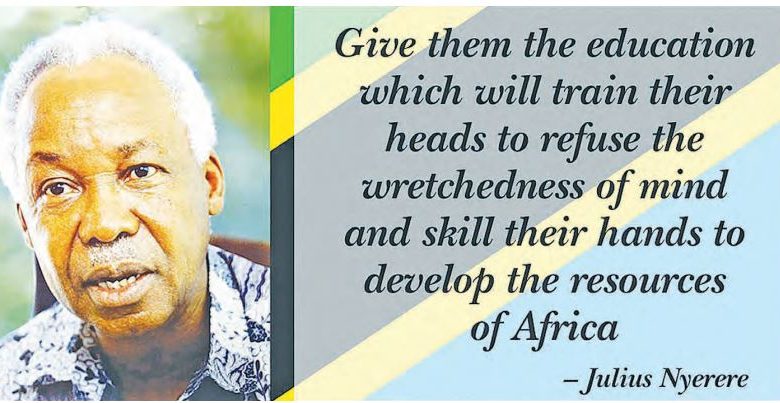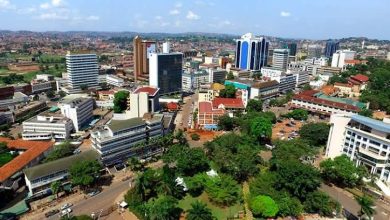Return to Nyerere politics in digital economy era, artificial intelligence

DAR ES SALAAM: AS the world accelerates into the digital age, where algorithms make decisions, data becomes the new currency and Artificial Intelligence (AI) redefines labour, the question for Africa is not merely how to catch up. It is how to shape its own path to modernisation.
Tanzania’s founding father, Julius Nyerere, believed in development with dignity.
His vision of Ujamaa, rooted in unity, equity and self-reliance, was moral, unapologetically African and deeply people-centred.
While some of his economic strategies faltered, the values behind them remain a powerful compass for a future where progress does not come at the expense of humanity.
In an era dominated by digital economies and intelligent machines, returning to Nyerere’s politics— with thoughtful adaptations could provide the foundation for an inclusive, ethical and sovereign future.
Despite being conceived decades ago, the pillars of Nyerere’s political philosophy still address some of today’s most pressing global challenges.
At its heart, Ujamaa placed people above systems, a radical stance in a world where technological efficiency often trumps empathy.
Nyerere insisted that economic systems exist to serve people—not the other way around.
This principle, applied in today’s AI-driven world, calls for policies that ensure automation and machine learning enhance human well-being rather than erode it.
The goal should not be replacing workers but empowering them, while bridging the gap between those who benefit from technology and those left behind.
Digital inclusion, rather than digital elitism, must become a priority.
Collective empowerment was another cornerstone of Nyerere’s vision. Ujamaa emphasised shared responsibility and community over ruthless competition.
This philosophy offers a strikingly different model from today’s global digital landscape, dominated by powerful tech monopolies and exploitative data practices.
ALSO READ: TBC announces essay writing contest for Mwalimu Nyerere legacy
Reinterpreted for the present, this principle could guide the creation of digital cooperatives and community-led platforms that allow citizens to control their own data, distribute resources more fairly and benefit collectively from digital innovation.
Nyerere’s commitment to ethical and modest leadership is also instructive in this age of technological governance.
He ruled with integrity and humility, prioritising the public good over personal gain.
As governments increasingly rely on AI systems for decisionmaking, ethics must not be treated as optional.
Instead, transparency, accountability and the preservation of citizen trust must shape the way digital governance operates.
Of course, some of Nyerere’s methods are incompatible with today’s realities.
Forced villagisation and economic isolation cannot work in a world that is interconnected, competitive and technology-driven.
Modernising Ujamaa requires replacing centralised planning with decentralisation, giving communities the autonomy to lead development initiatives using digital tools and real-time data.
African economies must also embrace open markets while safeguarding their sovereignty—integrating with the global economy on their own terms, through innovation and value creation rather than dependence.
Policies, too, must become smarter, leveraging AI and digital infrastructure to deliver faster, more resilient public services.
This vision for a “Digital Ujamaa” would reimagine Nyerere’s values for an AI-driven economy.
Machine learning could be deployed to support smallholder farmers, optimise resource management, and strengthen local decision-making.
Data must be treated as a collective asset, with governance frameworks that prioritise consent, ownership and value-sharing.
Investments should target not only urban centres but also underserved regions, bringing affordable internet, digital education and fintech tools to the many, not just the privileged few.
At the continental level, PanAfrican digital sovereignty could revive Nyerere’s dream of unity, with nations collaborating on shared AI research, regional data standards and cooperative innovation platforms.
Encouragingly, there are already signs that these ideas are taking root.
Across Tanzania and the broader continent, community-based digital agriculture platforms are helping farmers access markets and improve productivity.
Youth-driven civic technology initiatives are fostering greater government accountability.
Open-source education and mobile health solutions are bridging access gaps, while a growing discourse around AI ethics reflects a determination to ensure technology serves African contexts and values.
These developments are not coincidental; they are cultural and political evolutions inspired by the same principles Nyerere championed.
Ultimately, revisiting Nyerere’s politics is not about reliving the past. It is about reclaiming agency in a world where power is increasingly concentrated in algorithms and digital platforms.
Africa cannot afford to remain a passive consumer of imported technologies.
It must become an active designer of systems and a contributor to the global ethical framework shaping the future. Nyerere provided a blueprint for integrity, selfreliance and community.
Now it is up to us to rewrite that blueprint in the language of the digital age, through code, policy and a vision that works for 2025 and beyond. The challenge is not whether Africa can modernise.
It is whether it can modernise without losing its soul. With the right tools, informed by the right values, the answer can be a resounding yes. The writer is the president of the Internet Society Tanzania





